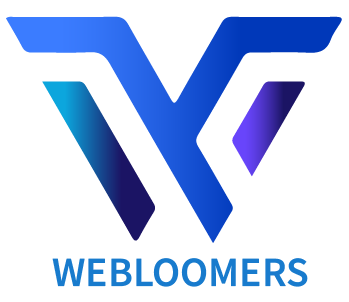
A content management system (CMS) is like a toolbox for building and managing your website. It makes it easy to add, edit, and delete content without knowing how to code. But with so many CMS options out there, how do you choose the right one for your website?
In this guide, we’ll help you understand what a CMS is and why it’s important. We’ll also compare some of the most popular CMS platforms and give you tips on how to choose the best one for your needs.
The Importance of a CMS in Website Management
A content management system (CMS) is a powerful tool that can simplify website management and make it more accessible to people who aren’t tech experts. Here are some of the key benefits of using a CMS:
- Ease of use: CMS platforms are designed to be user-friendly, so you don’t need to know how to code to create and manage your website.
- Flexibility: CMS platforms offer a wide range of features and customization options, allowing you to create a website that meets your specific needs.
- Time-saving: CMS platforms can save you time and effort by automating tasks like publishing content, updating your website, and managing comments.
- Cost-effective: Many CMS platforms are free or have affordable pricing plans, making them a cost-effective solution for website management.
- SEO benefits: CMS platforms often include built-in SEO features that can help you improve your website’s search engine ranking.
What is a Content Management System (CMS)?
A content management system (CMS) is like a toolbox for building and managing your website. It makes it easy to add, edit, and delete content without knowing how to code. Think of it as a user-friendly platform that lets you create and update your website’s content without needing to hire a programmer.
Benefits of Using a CMS
A content management system (CMS) offers many advantages for website owners and managers. Here are some of the key benefits:
- Ease of use: CMS platforms are designed to be user-friendly, so you don’t need to know how to code to create and manage your website.
- Flexibility: CMS platforms offer a wide range of features and customization options, allowing you to create a website that meets your specific needs.
- Time-saving: CMS platforms can save you time and effort by automating tasks like publishing content, updating your website, and managing comments.
- Cost-effective: Many CMS platforms are free or have affordable pricing plans, making them a cost-effective solution for website management.
- SEO benefits: CMS platforms often include built-in SEO features that can help you improve your website’s search engine ranking.
Popular CMS Platforms
WordPress
WordPress is by far the most popular CMS, used by millions of websites worldwide. It’s known for its ease of use, flexibility, and extensive plugin ecosystem. WordPress is suitable for a wide range of websites, from personal blogs to large e-commerce stores.
Joomla
Joomla is another popular CMS that offers a high degree of flexibility and customization. It’s well-suited for larger websites with complex requirements, such as corporate websites, online communities, and educational portals.
Drupal
Drupal is a powerful and scalable CMS that is often used for large-scale websites with complex requirements. It’s known for its flexibility, security, and performance. Drupal is a good choice for websites that need to handle a lot of traffic or require advanced features.
Other Notable CMS Options
While WordPress, Joomla, and Drupal are the most popular CMS platforms, there are many other options available. Some other notable CMS platforms include:
- Squarespace: A popular drag-and-drop CMS that is easy to use and offers a wide range of templates.
- Wix: Another popular drag-and-drop CMS with a focus on design and customization.
- Magento: A powerful e-commerce CMS that is designed specifically for online stores.
- Shopify: A popular cloud-based e-commerce platform that offers a wide range of features and integrations.
Factors to Consider When Choosing a CMS
Ease of Use
One of the most important factors to consider when choosing a CMS is its ease of use. If you’re not a tech expert, you’ll want a CMS that is intuitive and easy to navigate. Look for a CMS with a user-friendly interface, clear documentation, and a supportive community.
Features and Functionality
Different CMS platforms offer different features and functionality. Consider what features are important to you and your website. For example, if you need to create an online store, you’ll want a CMS with built-in e-commerce features.
Scalability
If your website is expected to grow over time, it’s important to choose a CMS that is scalable. This means that the CMS can handle increased traffic and data without compromising performance.
Cost
CMS platforms vary in cost. Some are free, while others require a subscription fee. Consider your budget and the features you need when choosing a CMS.
The Best CMS for Your Website
Choosing the right content management system (CMS) for your website is an important decision. By carefully considering factors such as ease of use, features, scalability, and cost, you can find a CMS that meets your specific needs.
Here’s a quick recap of the key points:
- WordPress: The most popular CMS, known for its ease of use and flexibility.
- Joomla: A versatile CMS suitable for larger websites with complex requirements.
- Drupal: A powerful CMS for complex websites that require advanced features.
- Other notable options: Squarespace, Wix, Magento, and Shopify.
- Key factors to consider: Ease of use, features, scalability, and cost.
